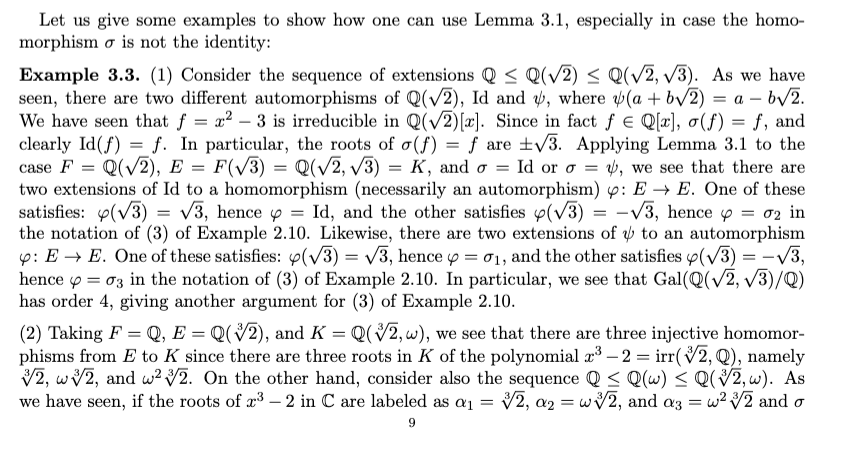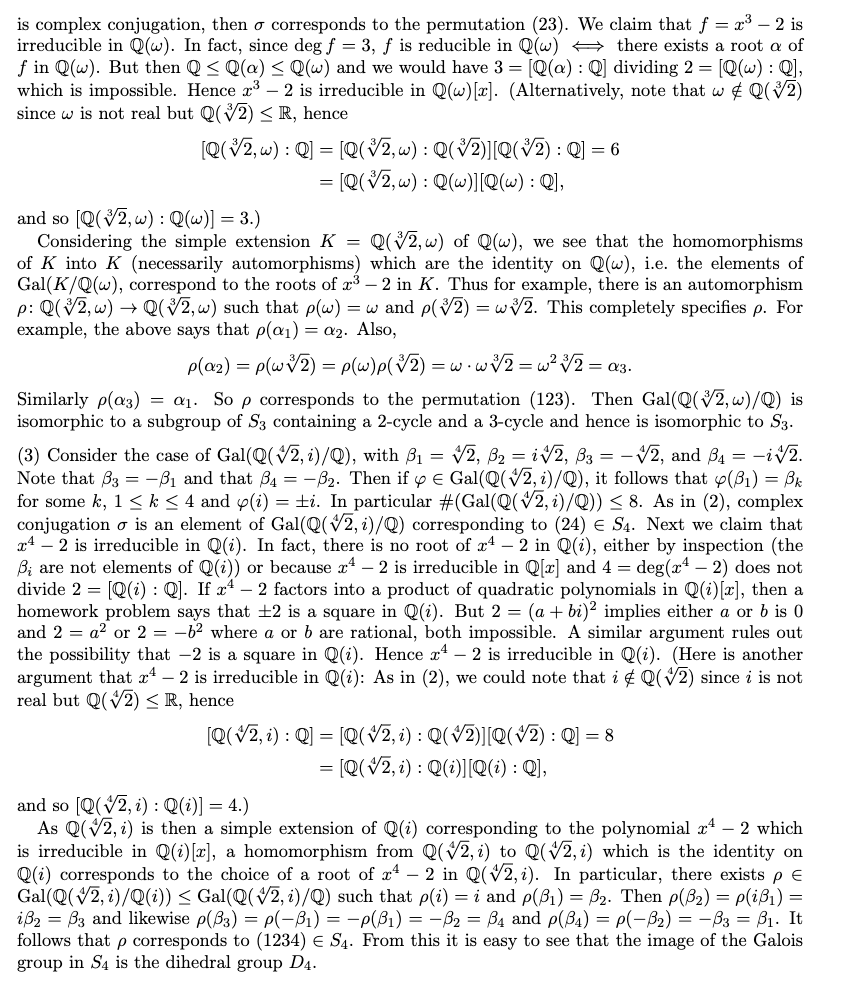Overview
The universal property of simple extensions says that every homomorphism can be extended to a homomorphism out of , where is algebraic over with minimal polynomial , by sending to any root of the polynomial in some extension field of .
This is an important preliminary result for proving the isomorphism extension theorem for simple extensions.
Statement and proof of the theorem
By a lemma in Automorphisms and polynomial roots, we know that when is a simple extension of a field with , then given a homomorphism , a subfield, and an extension of , the element is a root of . The following lemma states the converse.
Universal property of simple extensions
Let be a simple extension of a field , meaning for some that is algebraic over . Write for the minimal polynomial. Suppose is a homomorphism and is an extension of . Under these conditions, if is a root of , then there is a unique extension of to a homomorphism such that .
In other words, there is a bijection from the set of homomorphisms that restrict to on (i.e., for all ) to the set of roots of the polynomial in , where is the polynomial obtained by applying the homomorphism to the coefficients of .
Proof from Modern Algebra II. Key steps are emphasized.
Recall the following basic construction: if is a simple extension, then the kernel of the evaluation homomorphism
is precisely the principal ideal generated by the minimal polynomial :
Then (Theorem) First isomorphism theorem implies that the induced map
is an isomorphism, and there is a well-defined inverse satisfying
Let be a root of , and define the homomorphism
for all , where is the polynomial obtained by applying to the coefficients of and is the evaluation of at . By construction1,
Moreover, the hypothesis that implies , hence , hence since irreducible implies is a maximal ideal and implies is a proper, nontrivial ideal. This ensures that factors through , meaning there is an induced isomorphism . Then there exists a homomorphism satisfying the desired
For uniqueness, note that every element of can be uniquely written as a polynomial in with coefficients in , i.e., for some where 2. Since is defined by its action on (via ) and on , we see that its action an element of is fully determined:
To summarize, for every extension of , we know that:
- is a root of , since by definition thus, there is a well-defined function from the set of extensions of to the set of roots of in given by .
- is uniquely determined by the value ; thus, the function is injective.
- All possible roots of in arise as for some extension of (from the construction above); the function is surjective.
We conclude that when for some with , for any homomorphism , there is a bijection from the set of extensions of to the set of roots of in .
Examples
Footnotes
-
For , note that is a constant (i.e., degree 0) polynomial in , so is a constant polynomial at , and therefore evaluates to itself on . For , note that the degree 1 polynomial has coefficients and for all . Since is a homomorphism, it preserves these identities, so we have and in and hence . Evaluating at is clearly . ↩
-
The upper bound comes from the fact that higher powers of can be reduced using . concept-question WHY? ↩

